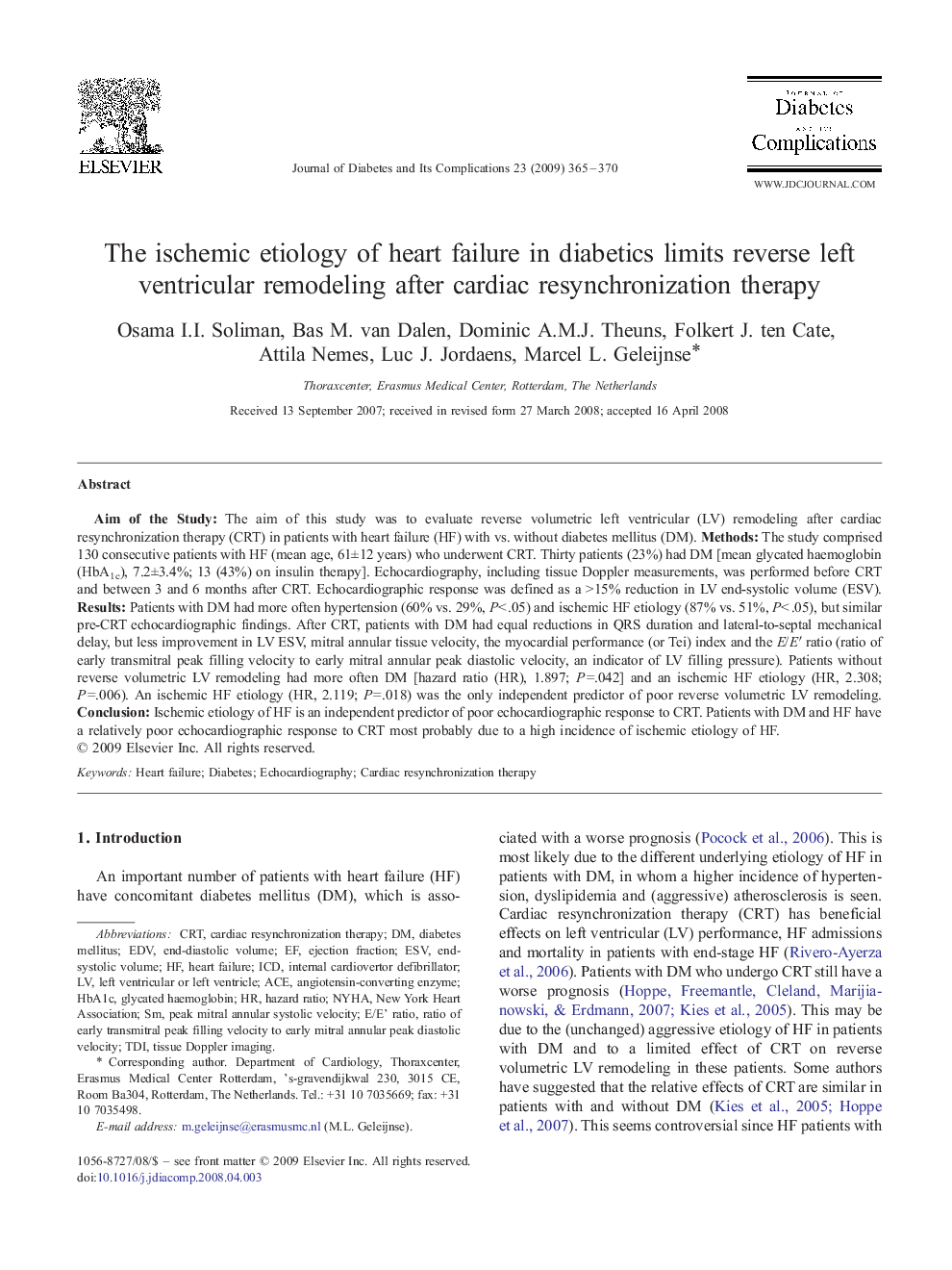| Article ID | Journal | Published Year | Pages | File Type |
|---|---|---|---|---|
| 2804565 | Journal of Diabetes and its Complications | 2009 | 6 Pages |
Aim of the StudyThe aim of this study was to evaluate reverse volumetric left ventricular (LV) remodeling after cardiac resynchronization therapy (CRT) in patients with heart failure (HF) with vs. without diabetes mellitus (DM).MethodsThe study comprised 130 consecutive patients with HF (mean age, 61±12 years) who underwent CRT. Thirty patients (23%) had DM [mean glycated haemoglobin (HbA1c), 7.2±3.4%; 13 (43%) on insulin therapy]. Echocardiography, including tissue Doppler measurements, was performed before CRT and between 3 and 6 months after CRT. Echocardiographic response was defined as a >15% reduction in LV end-systolic volume (ESV).ResultsPatients with DM had more often hypertension (60% vs. 29%, P<.05) and ischemic HF etiology (87% vs. 51%, P<.05), but similar pre-CRT echocardiographic findings. After CRT, patients with DM had equal reductions in QRS duration and lateral-to-septal mechanical delay, but less improvement in LV ESV, mitral annular tissue velocity, the myocardial performance (or Tei) index and the E/E′ ratio (ratio of early transmitral peak filling velocity to early mitral annular peak diastolic velocity, an indicator of LV filling pressure). Patients without reverse volumetric LV remodeling had more often DM [hazard ratio (HR), 1.897; P=.042] and an ischemic HF etiology (HR, 2.308; P=.006). An ischemic HF etiology (HR, 2.119; P=.018) was the only independent predictor of poor reverse volumetric LV remodeling.ConclusionIschemic etiology of HF is an independent predictor of poor echocardiographic response to CRT. Patients with DM and HF have a relatively poor echocardiographic response to CRT most probably due to a high incidence of ischemic etiology of HF.
